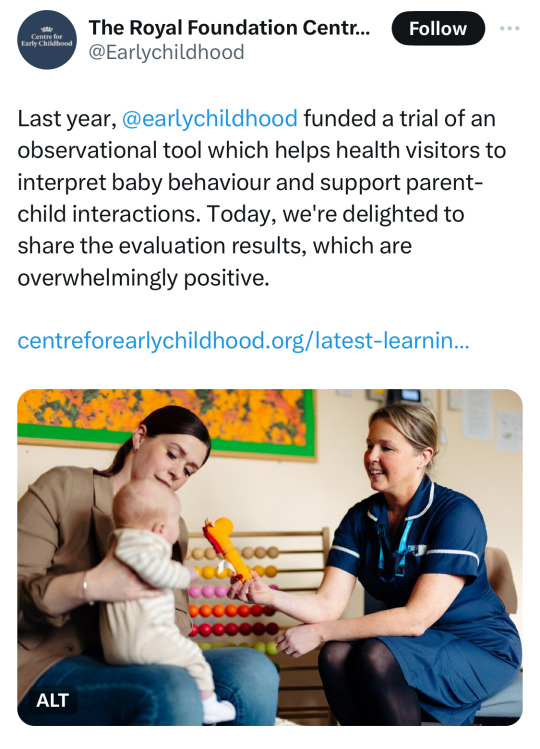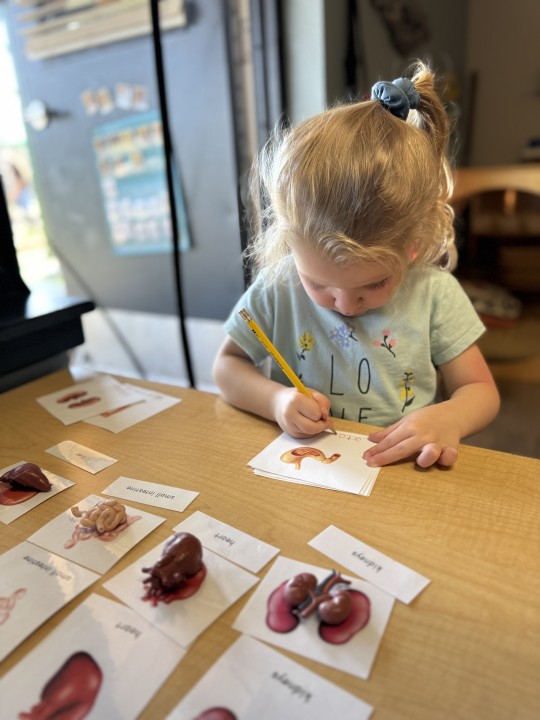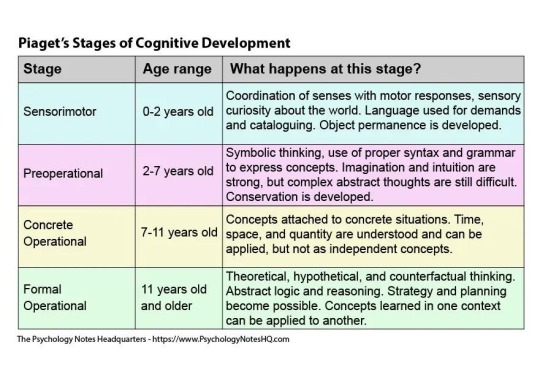#early childhood
Text


The study of ADBB funded by The Princess of Wales, Royal Centre for Early Childhood has returned with positive findings. The Princess became interested in ADBBs on a working visit to Denmark where they are being used successfully.
30 notes
·
View notes
Text
The foundations for so many of the soft skills businesses are looking for in their workplaces are developed in the earliest years of our lives.
Great to chat with @icelandrichard all about our #ShapingUs campaign with @earlychildhood
youtube
#catherine elizabeth#catherine middleton#princess catherine#princess catherine of wales#princess of wales#catherine the princess of wales#kensington palace#shaping us#early childhood#Youtube
69 notes
·
View notes
Text
There's got to be more like-minded educators and parents out there.

Please reblog or like this if you work in and post about early childhood (development / education /etc) or are a parent who is one or more of the following:
pro children's rights
a person of color
actually autistic
pro mental health awareness and action
for the right to an education for every single child regardless of age, race, gender, heritage, ethnicity, and more
comfortable shit posting stuff those without kids or maybe those who don't work with kids wouldn't understand
DNI if you are: a terf, nsfw blog, christianity apologist (spare the rod spoil the child), montessori is king I learned ab it via socail media teehe, mommy-fluencer, post your children or children you work with online, pro spanking, or think ABA therapy is acceptable
#Kids#Kid#Children#parents#parenting#families#family#early childhood education#Earlychildhood#Earlychildhoodeducation#Earlychildhoodedcutor#Early childhood#Early childhood educator#Actually autistic#And#autistic adult#Advice#advocacy#Children's rights#Childrens right#Child right s#Parenting#Parenthood#Motherhood#Fatherhood#Childhood#Childhood development#Early childhood development#Earlychildhooddevelopment#Teacher
30 notes
·
View notes
Text
playing games on the computer in 2005
#mcbling#y2k#aesthetic#2000s#barbie#myscene#polly pocket#bratz video game#winx club#hot pink#noughties#early 2000s#early childhood#frutiger#webcore#old web#digital#windows xp#flash games#metro#tiktok#edit#liminal spaces
16 notes
·
View notes
Text

Early Childhood - Nomenclature Cards: Human Anatomy
Montessori Nomenclature cards are used for classifying and building vocabulary and concepts in all subject areas. Also known as 3-part cards, this material is made up of a control card, which has the picture and word on the same card, and individual pictures and labels. Students then match the individual pictures and labels to the correct control card, providing for in-depth visual discrimination practice and independence, as students do not need to ask the teacher for help to check their work. For this 4-year-old student, the teachers have extended the work to include realistic objects and word tracing, adding layers of complexity to the work.
#human anatomy#3-part cards#hands on learning#language#purposeful activity#always learning#order#concentration#coordination#independence#tma#montessori#private school#arlingtontx#arlington#texas#infant#nido#toddler#early childhood#preschool#kindergarten#elementary#education#private education#nontraditional#the montessori academy of arlington
4 notes
·
View notes
Text
As a child, one has that magical capacity to move among the many eras of the earth; to see the land as an animal does; to experience the sky from the perspective of a flower or a bee; to feel the earth quiver and breathe beneath us; to know a hundred different smells of mud and listen unself- consciously to the soughing of the trees.
Valerie Andrews, in A Passion for this Earth
26 notes
·
View notes
Text
I’m not sure how I feel about all this.
On one hand, my fears are recognised and validated, I haven’t been imagining it, I haven’t made it up or pushed my own views onto her blindly.
I know deep down that doesn’t make her any less, like it doesn’t make me any less. Just different and different is okay.
But my whole life I have been nothing but different and I don’t want the for her.
But if our application gets rejected I will feel stupid that I pursued this, that actually I just an over anxious mom, seeing things and imagining things and ugh I don’t know which is worse
3 notes
·
View notes
Note
Hi, are you a professional? I ask as I saw you state some things I don't agree with and am curious (not attacking!). One that stood out was saying specific ages RAMCOA and DID can occur. Saying one must be before 8, but the other 9. In much of the recent research, there are questions over the age of DID being able to occur, saying that it can not be defined and will differ amongst patients as we are all unique. Of course it will be early childhood. But being specific to age 9 seemed odd to me, when more recent research shows otherwise. I'd just be curious to know if there are areas of research I'm not aware of. Thanks in advance!
Hello,
I don’t share any personal or identifying information. I will say, I’m not a doctor or psychiatrist.
Dissociative identity disorder is the result of repeated or long-term childhood trauma. It cannot form after 6 to 9 years of age. Source
Research has shown that the average age for the initial development of alters is 5.9 years old. Source
In five plus years of research, I've only seen this before-the-age-of-nine specification challenged by those who believe nine is too old. I wouldn't be surprised if there are exceptions, but as a general rule, DID doesn't develop in adults or older children. DID develops in early childhood. Source
A retrospective review of that patient’s history typically will reveal onset of dissociative symptoms at ages 5 to 10, with emergence of alters at about the age of 6. Source
Early childhood is a pivotal period of child development that begins before birth through age 8. This is a period of rapid brain and body development. Source
Part of the age for TBMC is so the programmes, script, and alters can be completed. The early age is to ensure there is time for this.
No worries about your ask. Feel free to send me the links to the information you’re talking about.
Oz
8 notes
·
View notes
Text
"If we can create a society, which sees the child within every adult – and the adult within every child - we will finally start to change it for the better.
We want to make the link between the skills we develop in early childhood and the core foundations that set us up for life and help us to thrive as adults.
To help give social and emotional skills the greater priority they deserve, The Royal Foundation Centre for Early Childhood has conducted a first-of-its-kind global listening exercise, involving experts from 21 countries around the world, to catalogue and identify the skills in this area that matter most throughout our lives.
@Earlychildhood has undertaken work to find a common bridge and set of core skills that can apply equally to children and adults, so we can bring people together with a common language and vision to drive action at every level – protecting and strengthening these skills for current and future generations across the whole of society.
Through this exercise, we found consensus around a set of skills that we develop and nurture during early childhood, but that continue to be enhanced and refined as we grow into adults.
They relate to knowing ourselves, managing our emotions, focusing our thoughts, communicating with others, nurturing our relationships, and exploring the world.
These are the skills that lay the foundations for our positive future mental health and resilience throughout our lives.
Healthy development of these core skills is not inevitable – they must be nurtured from our earliest moments of life.
The foundations for these skills are laid in early childhood, between pregnancy and the age of five, which is why those earliest years represent such a golden opportunity to make a difference right from the start.
But our social and emotional growth continues throughout our lifetime, and change is always possible."
— The Princess of Wales delivers keynote speech during the Shaping Us National Symposium at the Design Museum on 15 November 2023 in London, England.
#Princess of Wales#Catherine Princess of Wales#Catherine Middleton#Kate Middleton#British Royal Family#Shaping Us National Symposium#Design Museum#The Royal Foundation Centre for Early Childhood#early childhood#early childhood education#Shaping Us
3 notes
·
View notes
Note
So I was watching Annie the other night and noticed her orphanage was for girls only, and I would assume there was also a boys only orphanage. Was yours the same way? I think it'd be weird if it was not?
Wool's was actually a co-ed institution, however the children were housed in different wings regarding to gender once they left the nursery. There was mingling at mealtimes and for lessons, though we sat on opposite sides of the assembly room for church service.
27 notes
·
View notes
Text
Early childhood education is important because, for children to achieve their Full potential,as is their human right ,they need health and nutrition, protection from harm and a sense of security, opportunities for early learning and responsive caregiving who love them.
The importance of early childhood development is found in the emotional, social and physical development of the young children and how education has a direct effect on their overall development. Early childhood education is most beneficial for children ages three through five and is also often referred to a pre school, pre-kindergarten, daycare, nursery school or early education. Early childhood education is necessary for the preparation of young children for their transition into elementary school and beyond. Sending children who are of preschool -age to an early education program can have a positive impact on the child's life and give them a noticeable head start towards a bright future. Given these High child early child education Care rates ,both parents and professional have sought to understand the impact of these experiences on children's cognitive and social development. Evidence regarding the effects of preschool child Care on children's development has be derived from two distinct areas of research early intervention programs for children at risk and typical communicaty children.
However,I believe the purpose of early childhood are to stimulate and encourage the development of all areas such as languages, physical, cognitive, social, emotionally as well as spirituality. Early childhood educators provide children with experiences and environment for a child growth, where can be More productive member in our development.
In theory we have learned about Piagets’ stages of cognitive development. He stated that a child goes through stages. Which he stated and explained as follows:

Here’s a link to our podcast 👇🏽
3 notes
·
View notes
Text

15 November 2023: The Princess of Wales arrives for the Shaping Us National Symposium at the Design Museum, London. The Princess has convened experts from 21 countries to consider how we “grow, think and behave throughout life” to build resilience in early childhood.
#kate middleton#ktd#british royal family#princess of wales#brf#Early childhood#early childhood development#early childhood education#early childhood learning#early childhood trauma#early childhood intervention#fashion
38 notes
·
View notes
Text
Something I wish I had learned much earlier: if your kid is looking for attention the simplist solution is to teach them how to ask for attention.
#parenting#validation#inner child#any child#take up space#be you#the world needs you#kids#education#early childhood#toddlers#attention deprived#attention seeking#adhd#hyperactive kids#discipline#parents#attachment
26 notes
·
View notes
Text
#Preschool#Elementary#Mommy blog#Member#Mumble#Bluey#Mrs rachel#Mrs Monica#Prek#Early childhood#Early#Childhood#early childhood development#early childhood education#2020's#Television#TV shows#TV show#Daycare#Mom#Mom stuff#motherhood#Mom life#Kids#Children#Kid
7 notes
·
View notes
Text
As a royal watcher for many years, of course I know about Catherine's Early Years project, and I'm thankful that because of her, her team, and of course other factors, I'm now aware of how essential the first five years are and how much those first building blocks make up the adult we become.
However, I am not Catherine's target audience.
Everyone has a role to play in how a child is brought up in the world. As Catherine says big changes start small. So yes, whilst it is important that researchers and early years educators know how to support children, it also essential for those who feel they have no role in how children are brought up, as from their research, everyone plays a role!
Whether that be making grandparents aware of what they can do to help, letting public transport workers know how to interact with children, how the media plays a role in what children consume, tech giants with assisting technologies, lawyers in how they represent their clients, how the language that we use in our everyday vocabulary make an impact on our little ones, etc.
I'll be the first the admit I did do a little eye roll when I heard the words 'awareness campaign' and I am still a bit skeptical...but I am so excited for Catherine's #ShapesUs campaign, due to be released in full on Monday 30th January, after all, big change starts small ❤️
#brf#british royal family#william and catherine#royals#catherine and william#duke and duchess of cambridge#prince and princess of wales#princess of wales#prince of wales#catherine#shapes us#early childhood#early years
8 notes
·
View notes
Text


Toddler - Open and Close
This student, who recently joined the Toddler class from our Infant class, is very focused on this work! The Practical Life activity called Open and Close seeks to give children a wider access to the world, by showing them to open different containers. The more they practice, the more their confidence and independence grows! Opening and closing various items is the perfect activity to strengthen wrist and hand muscles, while directly helping children understand how to open the containers they see on a daily basis.
#focus#hands on learning#experiential learning#purposeful activity#fine motor skills#order#concentration#coordination#independence#tma#montessori#private school#arlingtontx#arlington#texas#infant#nido#toddler#early childhood#preschool#kindergarten#elementary#education#private education#nontraditional#the montessori academy of arlington
6 notes
·
View notes